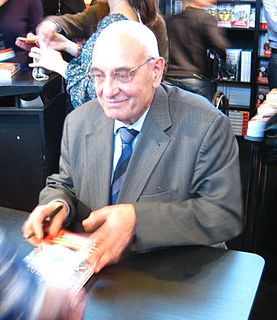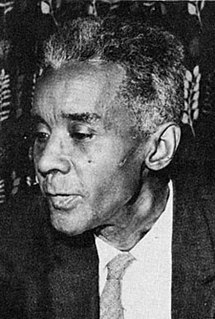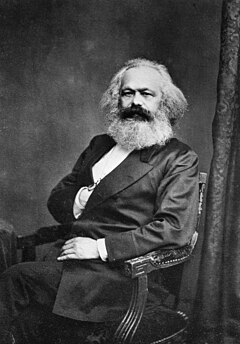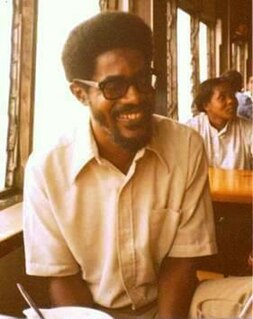 W
WMarxist historiography, or historical materialist historiography, is a school of historiography influenced by Marxism. The chief tenets of Marxist historiography are the centrality of social class and economic constraints in determining historical outcomes. While Marxist historians all follow the tenets of dialectical and historical materialism, the way Marxist historiography has developed in different regional and political contexts has varied. In particular, Marxist historiography has had unique trajectories of development in the West, in the Soviet Union, and in India, as well as in the Pan-Africanist and African American traditions, adapting to these specific regional and political conditions in different ways.
 W
WErvand Abrahamian is an Iranian American historian of the Middle East. He is Distinguished Professor of History at Baruch College and the Graduate Center of the City University of New York and is widely regarded as one of the leading historians of modern Iran.
 W
WZigmas Ionovich Angarietis was a Lithuanian communist, Russian revolutionary, one of the leaders of the Communist Party of Lithuania. He was one of the main people behind the short-lived Lithuanian Soviet Socialist Republic (1918–1919) and Lithuanian–Belorussian Soviet Socialist Republic (Litbel). Angarietis was arrested in 1938 during the Great Purge and executed two years later. During his lifetime he wrote over a hundred Marxist–Leninist works.
 W
WEdvard Bull was a Norwegian historian and politician for the Labour Party. He took the doctorate in 1912 and became a professor at the University of Kristiania in 1917, and is known for writings on a broad range of subjects. In addition to his academic work, he is known for his work on Norsk biografisk leksikon. His Marxist leanings inspired him to take up a parallel political career, in the Labour Party. Situated on the radical wing in the 1910s, he was among the architects as the Labour Party denounced the Twenty-one Conditions in 1923 and reunited with the social democrats in 1927. He was the deputy party leader from 1923 to 1932, and served as Norwegian Minister of Foreign Affairs in Hornsrud's short-lived cabinet in 1928.
 W
WWillem Drees Sr. was a Dutch politician of the defunct Social Democratic Workers' Party (SDAP) and later co-founder of the Labour Party (PvdA) and historian who served as Prime Minister of the Netherlands from 7 August 1948 to 22 December 1958.
 W
WMax Gallo was a French writer, historian and politician. He wrote over one hundred books.
 W
WRobert Grimm was the leading Swiss Socialist politician during the first half of the 20th century.
 W
WEric John Ernest Hobsbawm was a British historian of the rise of industrial capitalism, socialism and nationalism. A life-long Marxist, his socio-political convictions influenced the character of his work. His best-known works include his trilogy about what he called the "long 19th century", The Age of Extremes on the short 20th century, and an edited volume that introduced the influential idea of "invented traditions".
 W
WCyril Lionel Robert James, who sometimes wrote under the pen-name J. R. Johnson, was a Trinidadian historian, journalist and socialist. His works are influential in various theoretical, social, and historiographical contexts. His work is a staple of subaltern studies, and he figures as a pioneering and influential voice in postcolonial literature. A tireless political activist, James is the author of the 1937 work World Revolution outlining the history of the Communist International, which stirred debate in Trotskyist circles, and in 1938 he wrote on the Haitian Revolution, The Black Jacobins.
 W
WAlfred Klahr was an Austrian communist politician, journalist and historian. He was the leading marxist intellectual and theorist in the First Austrian Republic.
 W
WNikolai Mikhailovich Lukin was a Soviet Marxist historian and publicist. He was a leader among Soviet historians in the 1930s, after the death of Mikhail Pokrovsky.
 W
WKarl Heinrich Marx was a German philosopher, economist, historian, sociologist, political theorist, journalist and socialist revolutionary. Born in Trier, Germany, Marx studied law and philosophy at university. He married Jenny von Westphalen in 1843. Due to his political publications, Marx became stateless and lived in exile with his wife and children in London for decades, where he continued to develop his thought in collaboration with German thinker Friedrich Engels and publish his writings, researching in the reading room of the British Museum. His best-known titles are the 1848 pamphlet The Communist Manifesto and the three-volume Das Kapital (1867–1883). Marx's political and philosophical thought had enormous influence on subsequent intellectual, economic and political history. His name has been used as an adjective, a noun and a school of social theory.
 W
WMikhail Nikolayevich Pokrovsky was a Russian Marxist historian, Bolshevik revolutionary and a public and political figure. One of the earliest professionally trained historians to join the Russian revolutionary movement, Pokrovsky is regarded as the most influential Soviet historian of the 1920s.
 W
WDavid Renton is a British barrister, historian and author. He was a long-term member of the Socialist Workers Party (SWP) and has written a number of books on fascism and the politics of the left.
 W
WWalter Anthony Rodney was a prominent Guyanese historian, political activist and academic. He was assassinated in 1980.
 W
WAndrey Vasilievich Shestakov was a Soviet historian, a specialist in the agrarian history of Russia. Professor (1935), Doctor of Historical Sciences (1937), Corresponding Member of the Academy of Sciences of the Soviet Union.
 W
WEduard "Ed" van Thijn is a retired Dutch politician of the Labour Party (PvdA) and historian.
 W
WViacheslav Petrovich Volgin was a Russian historian who wrote a number of books on early forms or precursors of communism, and who became vice-president of the Russian Academy of Sciences.